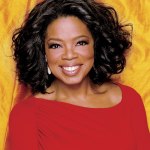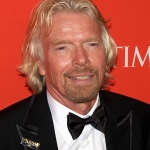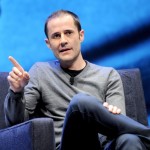Why Trying to Balance Life and Work Can Make You Less Productive

Did you know that the majority of the world’s most successful self-made billionaires made their fortune after starting (and sometimes failing at) several businesses?
For some entrepreneurs having too many business ideas can present a dilemma of sorts—should you pursue just one idea for the rest of your life or should you venture out, pursue viable ideas, and see them to fruition?
For other entrepreneurs, the ability to generate so many ideas and to see opportunity everywhere is in fact a blessing. Many ideas mean just one more opportunity to pursue a lifelong dream.
But, let’s be honest, most serial entrepreneurs do not always succeed in all their ventures. Some pursuits fail and are so successful that they become household brands. In a sense, serial entrepreneurs do not learn from their mistakes. Rather, they do not let their past failures deter them from yet another risky path to starting a new business.
Here’s what entrepreneurs can learn about leadership from the world’s most successful serial business owners:
“I believe that one of life’s greatest risks is never daring to risk.”
 Consistently ranked as the world’s top ten billionaires and among the most influential people globally, Oprah Winfrey’s business empire spans a story of failure, success and expansion. Having been rejected by ABC network as not being good enough for television, Winfrey took great risk in starting her own national show via her Harpo Productions company.
Consistently ranked as the world’s top ten billionaires and among the most influential people globally, Oprah Winfrey’s business empire spans a story of failure, success and expansion. Having been rejected by ABC network as not being good enough for television, Winfrey took great risk in starting her own national show via her Harpo Productions company.
On a typical week, up to 40 million people in the US alone watch the Oprah Winfrey Show. The show, arguably the most popular in day television during its time, was also aired in 150 countries. Today, the Oprah brand is a global one and houses many other products include a radio satellite show, the Oprah Winfrey television network, a website, magazine. Under her Harpo Productions, she has published five books and dabbles in movie productions as well.
Lesson: As a leader, you will fail many times, but do not be afraid to take risks just because you are afraid of failure.
“A business has to be involving, it has to be fun, and it has to exercise your creative instincts.”
 Figuratively known as Dr. Yes, Richard Branson aptly epitomizes the true spirit of a serial entrepreneur. From selling Christmas trees at age 12, building and then selling his records business, to establishing a premium airline, Branson’ entrepreneurial ventures have been largely successful, raking him millions and worldwide recognition as a business leader.
Figuratively known as Dr. Yes, Richard Branson aptly epitomizes the true spirit of a serial entrepreneur. From selling Christmas trees at age 12, building and then selling his records business, to establishing a premium airline, Branson’ entrepreneurial ventures have been largely successful, raking him millions and worldwide recognition as a business leader.
Admittedly, Branson may not espouse the archetypal business leader; neither does he adhere to conventional thinking when it comes to pursuing business opportunities and making them successful. But what’s really made him successful is his ability to recognize opportunities and to pursue them to fruition. Today, Virgin Group houses over 400 enterprises, with the latest being Virgin Galactic, space tourism company.
Although it is easy to assume that Branson jumps onto every opportunity that will make him money, he admits that he rarely pursues opportunities just for the sole reason of making a buck. Without a doubt, he assesses the level of risk involved in opportunities. But most importantly, he tries to pursue opportunities that are fun to work on.
Lesson:
But most importantly, as you expand, create an atmosphere that allows you and your team to have a good enough time to do amazing things.
“My life has been a series of well-orchestrated accidents; I’ve always suffered from hallucinogenic optimism.”
 His background as a Nebraska farm-boy makes Evan William an unlikely candidate as one of the world’s most influential business leaders. As the co-founder of Blogger and Twitter, Williams contributed to the creation of two of the most revolutionary online products.
His background as a Nebraska farm-boy makes Evan William an unlikely candidate as one of the world’s most influential business leaders. As the co-founder of Blogger and Twitter, Williams contributed to the creation of two of the most revolutionary online products.
According to Williams, Blogger and Twitter began as side projects. He also was dabbling with Odeo, which he thought would be a leading podcast creation software but he later abandoned the project to pursue Twitter.
Although he always advices business leaders to focus and obsess on just one thing, he also realizes that if he had not been occupied by both Blogger and Twitter amidst other projects, he probably would not have been as successful as he is today. William advises leaders who want to pursue different projects to be ‘locked into the right problem.’
Lesson: Listen to your gut feeling and explore those things that constantly nag at you.
When you visit any web site, it may store or retrieve information on your browser, mostly in the form of cookies. Control your personal Cookie Services here.
Hi Andrew.
Richard Branson is quite unique I think. And his philosophy is something I like – he doesn’t look at opportunities purely from a making money angle. He sees it from other angles as well, and that’s important as a lot of people in today’s world look at these things purely from a money perspective.
I hadn’t heard of Evan Williams before, interesting to hear a little about him. And of course Oprah is a household name.
My favourite serial entrepreneur has to be Sir Alan Sugar though. He has had more failures than most people put together, but still continues on and doesn’t let anyone stop him.
I’m sharing this article now Andrew.